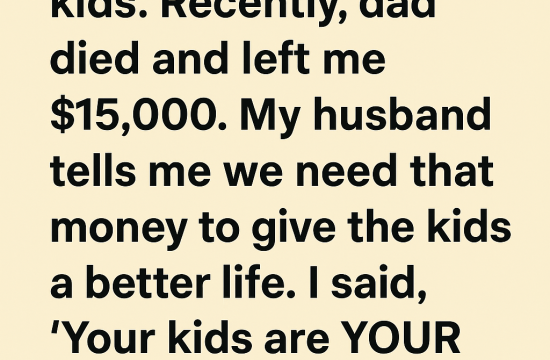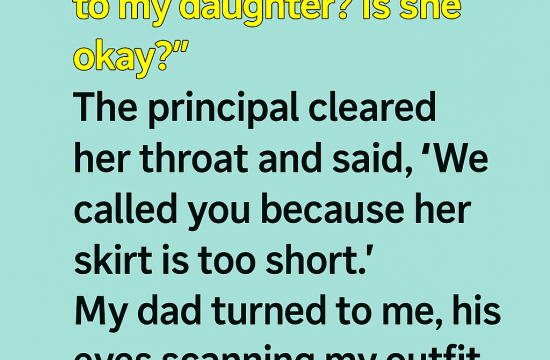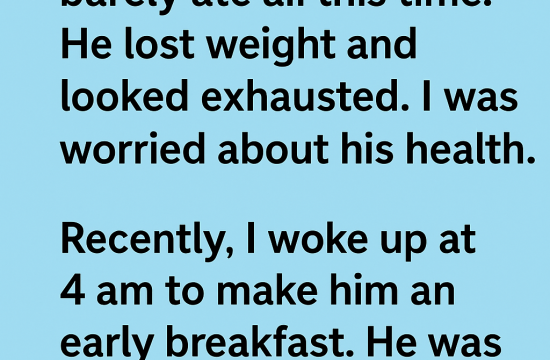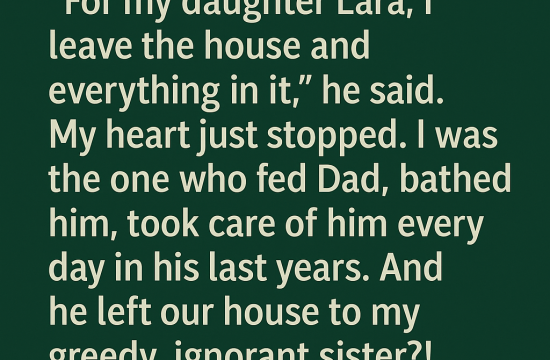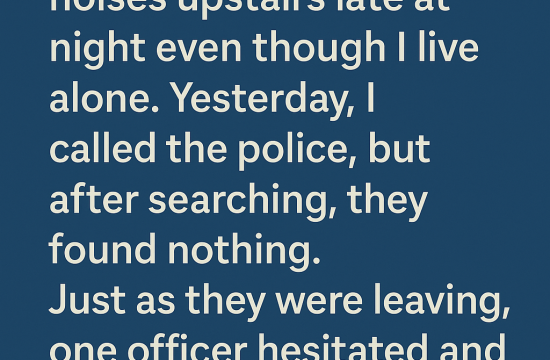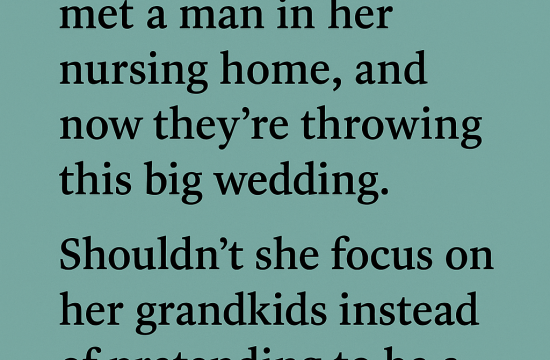Five weeks ago, my world changed in the most beautiful and challenging ways when I became a mother. My son, with his tiny fingers and soft sighs, became the center of my universe. Yet, amid this overwhelming love, a shadow loomed over our little family’s happiness — my mother-in-law. From the moment we brought our son home, she stationed herself in our living room, transforming it into her permanent base camp.
Her intentions might have been good — at least that’s what my husband insisted, claiming she was there to “help us.” But her presence quickly became less help and more hindrance. She filled our home with visitors, creating chaos instead of calm. Still, I chose silence over confrontation, hoping peace was worth the sacrifice.
But as the endless cycle of feeding, changing, and soothing my son wore me down, the cracks widened. I often went hours without food. My mother-in-law, who promised to cook, never once lifted a hand with the baby. Exhausted and hungry, I clung to the hope that at least meals would be taken care of.
That illusion shattered last night.
After a long session of breastfeeding, I emerged from the nursery expecting to find a plate waiting for me. Instead, my husband shrugged indifferently while his mother coolly announced there was no food left. “I assumed you weren’t hungry,” she said, her voice sharp enough to slice deeper than any pang in my stomach.
Something in me snapped. Words I had buried for weeks burst forth. The argument was bitter, ugly — and revealing. My husband’s fierce defense of his mother, and his fury at my “ungratefulness,” made one thing clear: I was utterly alone in this struggle. When he added that I should wash the dishes too, I realized I couldn’t stay another moment.
With my son in my arms, I walked out and sought refuge at my mother’s house. The relief was immediate — the quiet, the kindness, the sense of being cared for. But even there, the conflict followed. My phone buzzed endlessly with my husband’s accusatory messages, each one painting me as the villain who had abandoned him over “trivial food.” His version of the story spread through his family like wildfire, leaving me even more isolated.
Still, I found my anchor in my son. His innocent dependence, his warmth, his steady breathing against my chest reminded me of my responsibility — not just to nurture him, but to fight for a better environment for both of us.
In a moment of desperation, I reached out to someone I hadn’t thought to involve: my father-in-law. Through tears and trembling words, I told him everything. Every slight. Every neglect. Every wound his wife and son had left raw.
To my shock, he didn’t brush it aside or offer hollow comfort. He took action.
Within the hour, he stood beside me at my doorstep, his usual gentle face sharpened with resolve. Inside, my husband and mother-in-law sat comfortably in front of the TV, oblivious to the storm that had arrived. My father-in-law didn’t waste a single word on pleasantries.
“This ends now,” he declared.
Turning to my husband, his voice thundered with authority and disappointment: “From this day forward, you wash the dishes every night. Your wife needs your support, not your neglect.” My husband’s stunned silence spoke louder than protest.
Then my father-in-law faced his wife. “And you — it’s time to go home. Your ‘help’ is doing more harm than good.” The indomitable woman I had always known suddenly shrank into silence, her protests dying on her lips.
Finally, he turned to me with gentleness returning to his tone. “Now, let’s get you a proper meal.”
That dinner was more than food — it was validation, solidarity, a balm to weeks of pain.
In the days that followed, the ripple effects of his intervention reshaped our family. My husband, humbled, began to share the load — not just with chores but with fatherhood itself. The nightly clatter of dishes became a symbol of his renewed sense of responsibility. My mother-in-law’s once-constant presence shrank into rare, more respectful visits.
Gradually, peace replaced turmoil. Respect replaced dismissal. Support replaced neglect.
And I realized something profound: sometimes it only takes one person — one brave voice — to shift the balance and restore what felt impossible to heal.
The struggle that once felt like the end of everything instead became the beginning of a new chapter — one where my husband grew into the partner I needed, my son thrived in a calmer home, and even my mother-in-law learned to step back.
It wasn’t easy. It wasn’t perfect. But it was progress. And in those small, steady steps forward, I found hope for a future where love, respect, and support weren’t luxuries, but the very foundation of our family.




